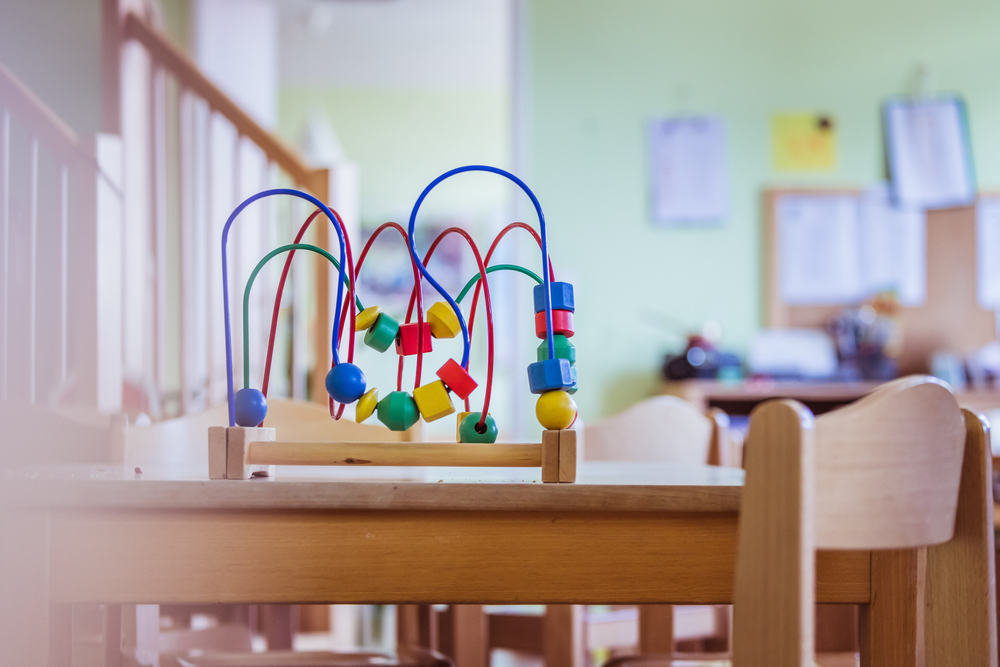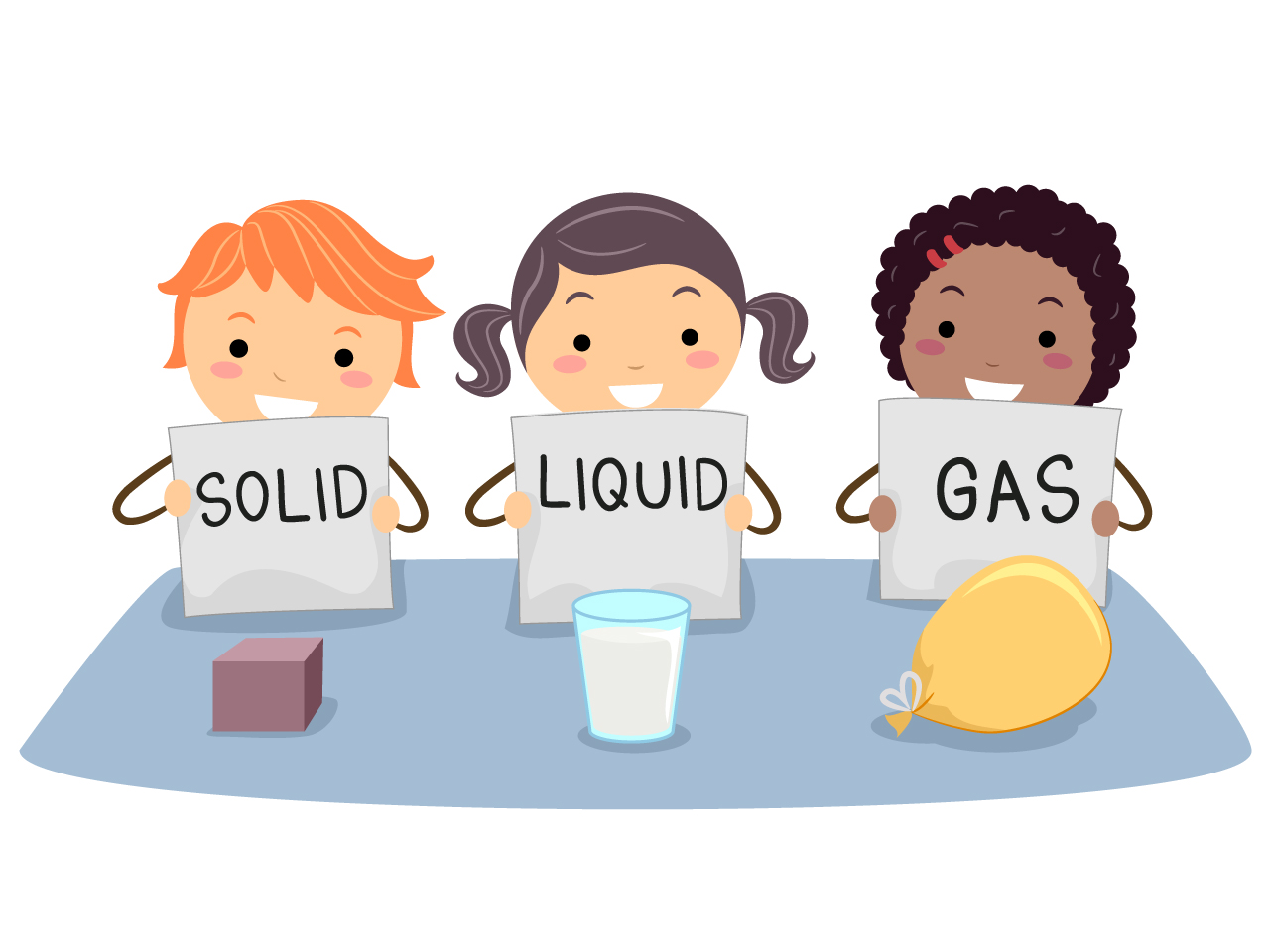Enhancing observational skills Physical Science Worksheets for Ages 5-7
5 filtered results
-
From - To
Discover our "Enhancing Observational Skills Physical Science Worksheets" designed specifically for children aged 5 to 7! These engaging worksheets foster curiosity and encourage young learners to explore the essential principles of physical science through hands-on activities and observation tasks. Each worksheet is thoughtfully crafted to improve critical thinking and enhance observational skills, making learning both enjoyable and effective. Topics include identifying materials, exploring shapes and colors, and understanding basic physical concepts. Perfect for use at home or in the classroom, these resources aim to ignite a lifelong passion for science in young minds. Start your child’s scientific journey with us today!
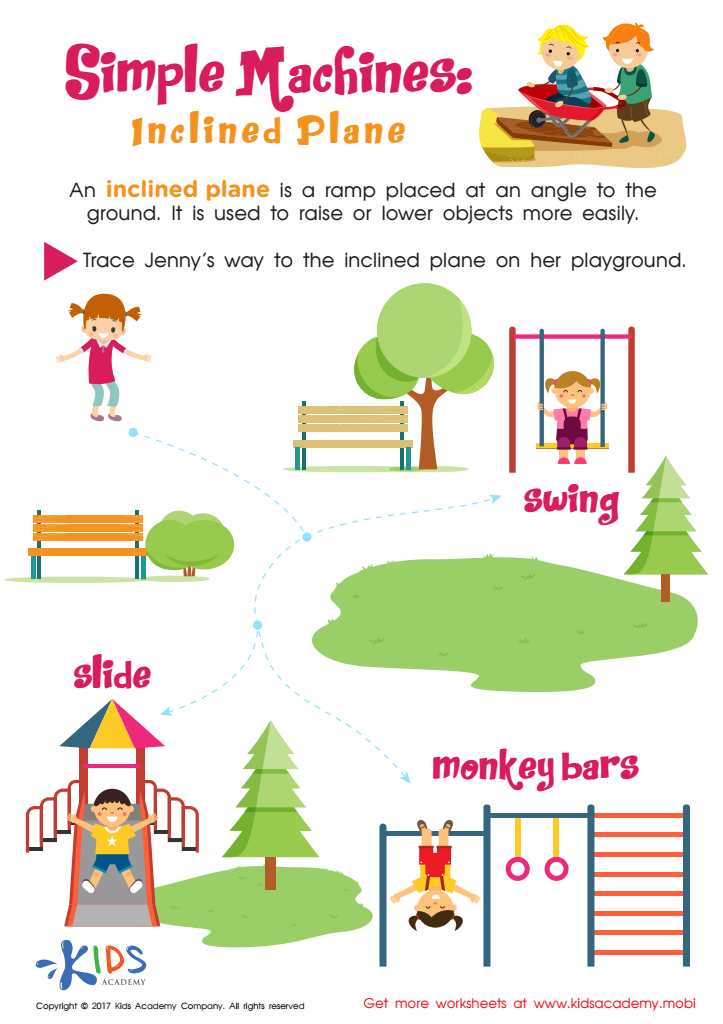

Simple Machines Inclined Plane Worksheet
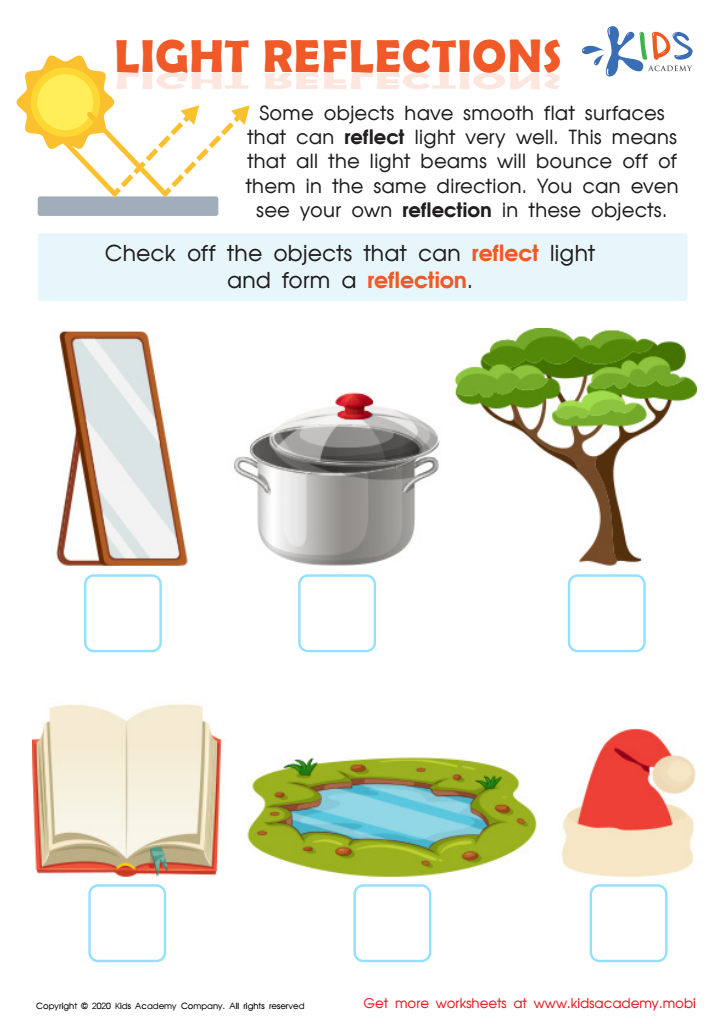

Light Reflections Worksheet
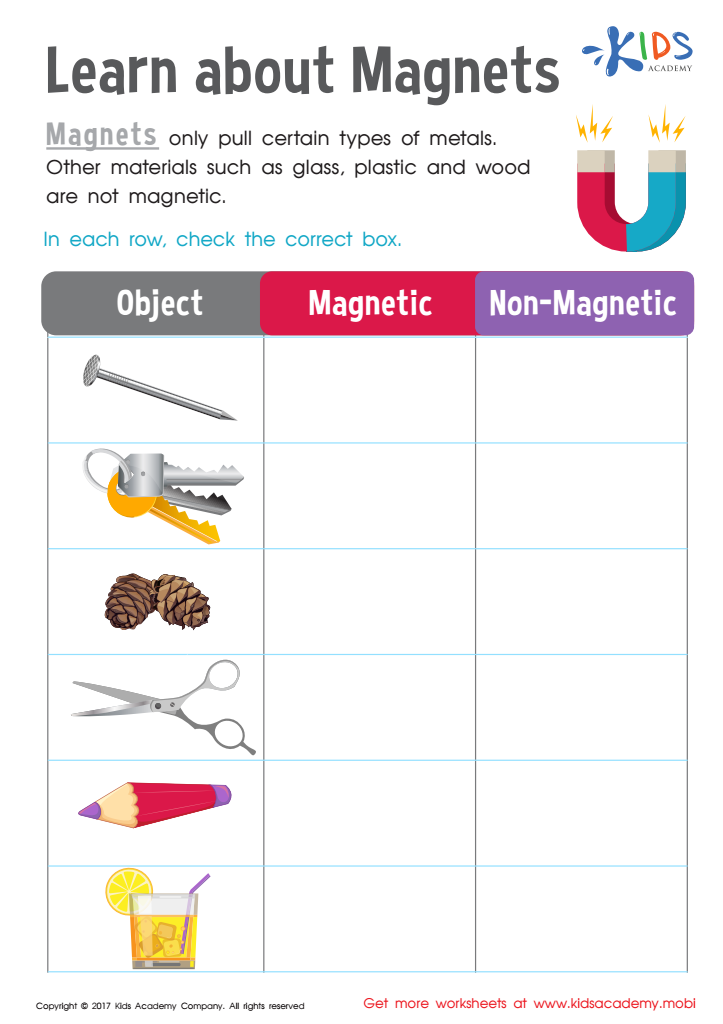

Magnetic Or Not Worksheet
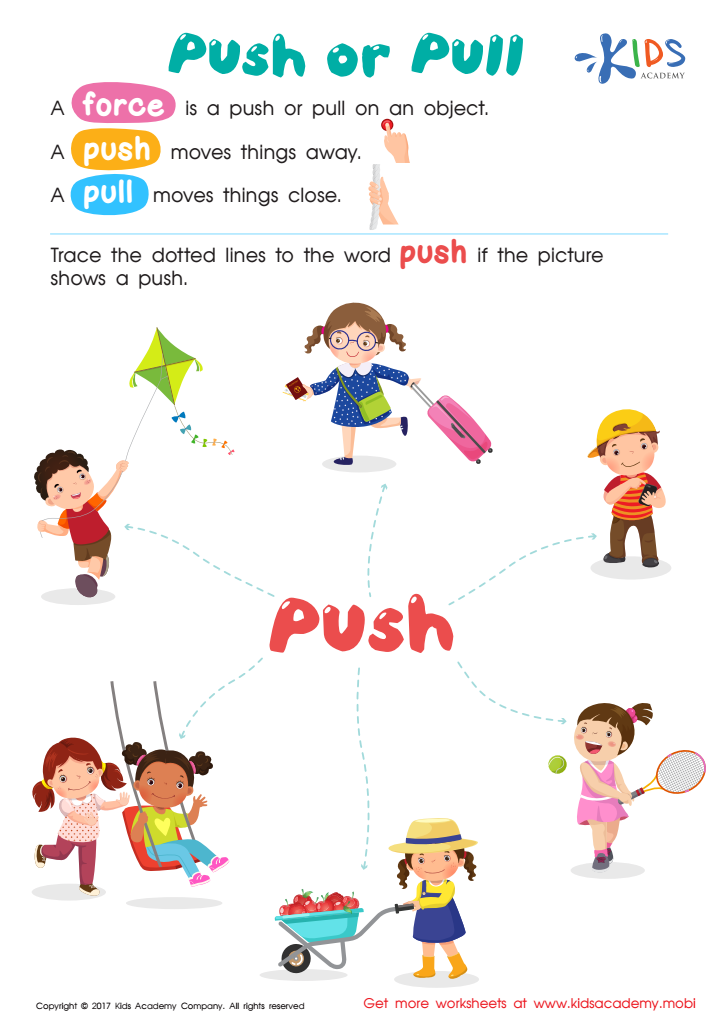

Push or Pull Worksheet
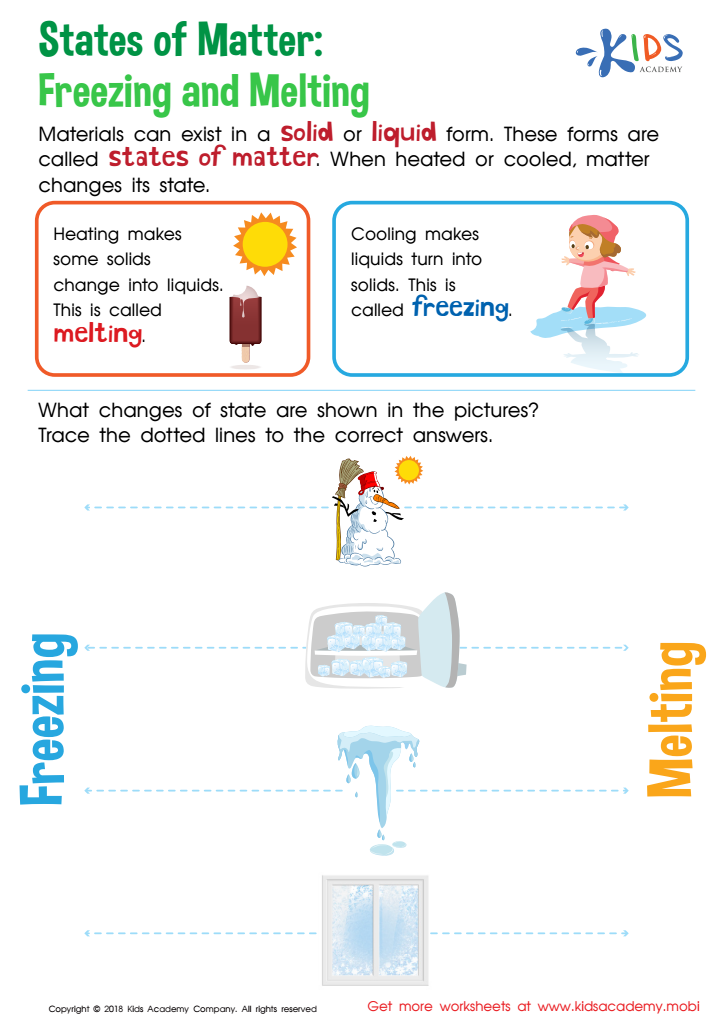

States of Matter: Freezing and Melting Worksheet
Enhancing observational skills in young learners, particularly in the realm of physical science, is crucial for several reasons. For children aged 5-7, these skills serve as foundational building blocks for scientific thinking and inquiry. During this developmental stage, children exhibit natural curiosity about the world around them. When parents and teachers foster observational skills, they create opportunities for students to engage in active learning, allowing them to observe, ask questions, and draw conclusions based on their experiences.
Moreover, enhanced observational skills contribute to better problem-solving abilities and critical thinking. By honing these skills early on, children can learn to analyze and interpret data—a key component of scientific literacy. Observing physical phenomena, such as changes in states of matter or the simple mechanics of motion, can ignite a lifelong interest in science and encourage a love of learning.
Additionally, strong observational skills nurture wonder and discovery, allowing children to learn through play and exploration. Engaging in hands-on activities and outdoor observations builds excitement and lays the groundwork for more advanced scientific concepts in future years. Ultimately, promoting observational skills in early education enriches children's understanding of their environment, encouraging thoughtful, inquisitive, and engaged future learners.
 Assign to My Students
Assign to My Students




